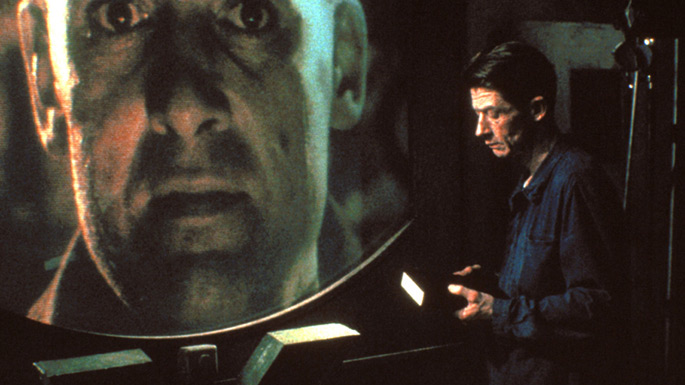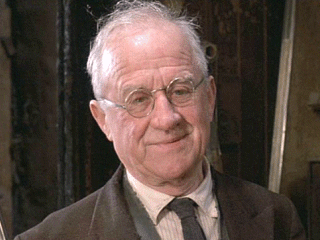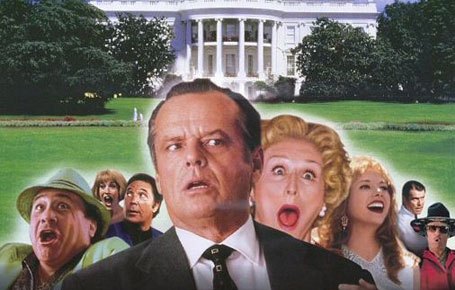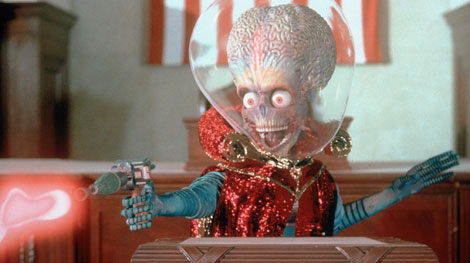This review was published in the June 1985 issue of Video Times. Criterion has brought out an excellent Blu-Ray edition of this film that I can highly recommend — along with Thomas Pynchon’s Foreword to the 2003 Penguin edition of Orwell’s novel. — J.R.


1984
(1984), C, Director: Michael Radford. With John Hurt, Richard Burton, Suzanna Hamilton, and Cyril Cusack [see below]. 110 min. R. USA, $79.95.
***½

Director Michael Radford’s 1984, filmed in England between April and June of 1984 (the same period during which the action of George Orwell’s famous 1949 novel takes place), is a film adaptation that succeeds brilliantly. In one fell swoop, it repoliticizes the novel — translating it into terms that speak directly to the present. Paradoxically, it pulls off this singular feat not through any spurious “updating” of Orwell’s terrifying novel but by situating the novel squarely in its own period. Consequently, the film’s action can be said to unfold simultaneously in three separate time frames: the past (specifically the 1940s, during which Orwell conceived and wrote his novel), the future (as we postulate it in this decade), and the present (the mid-1980s). Emerging from the interplay between these three contexts is one of the most rigorous and faithful literary adaptations in the history of cinema — a 1984 that one feels sure Orwell himself would have recognized and appreciated. Read more
From the Chicago Reader (December 13, 1996). — J.R.

Mars Attacks! ***
Directed by Tim Burton
Written by Jonathan Gems
With Jack Nicholson, Glenn Close, Annette Bening, Pierce Brosnan, Danny DeVito, Martin Short, Michael J. Fox, Rod Steiger, Tom Jones, Lukas Haas, Natalie Portman, Jim Brown, Lisa Marie, and Sylvia Sidney.
By Jonathan Rosenbaum

As light entertainment, Mars Attacks! gave me more pleasure than most other recent movies I’ve seen, including Daylight, The English Patient, Independence Day, Jingle All the Way, 101 Dalmatians, Space Jam, Trees Lounge, and 2 Days in the Valley. Maybe this is because it achieves the level of nonseriousness so many of its competitors aim for, a level the mass media have been touting as the ideal for big-time movies. If that ideal is to keep you enthralled for a couple of hours and leave a minimum of aftertaste, then Tim Burton’s SF comedy pretty much fills the bill. It also made me laugh.

Part of what kept me so absorbed — apart from the neatly designed effects and a few of the actorly turns, including Jack Nicholson’s — is the sense the film conveys of postmodernist free fall through the iconography of 50s and 60s science fiction in relation to the present: a singular sense of giddy displacement that clearly locates the movie in the 90s, but a 90s largely made up of images and cliches from previous decades that are subtly turned against themselves, made into a form of camp, affectionately mocked, yet still revered as if they had a particular purchase on the truth. Read more






